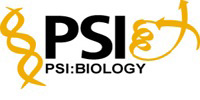Centers of Excellence
Center for Cancer Systems Therapeutics (CaST)
As a member of National Cancer Institute’s Cancer Systems Biology Consortium (CSBC), CaST is developing a novel framework focused on characterizing and targeting the regulatory machinery at the heart of cancer cell state initiation and maintenance.

Cancer Target Discovery and Development Center (CTD 2 )
CTD 2 is supporting the development of new ways to use the rapidly growing body of cancer genomics information to systematically and efficiently develop new precision treatments. Department faculty is involved in studying the systems biology of tumor progression and drug resistance; and in developing informatics infrastructure for sharing findings of the CTD2 network with the scientific community.

Center for Topology of Cancer Evolution and Heterogeneity
A member of the National Cancer Institute's Physical Sciences in Oncology Network, the Center for Topology of Cancer Evolution and Heterogeneity is a multidisciplinary, multi-institutional research center that supports research and education that combines new mathematical and experimental techniques for the study of cancer.
Past Centers

Center for Multiscale Analysis of Genomic and Cellular Networks (MAGNet)
For 10 years, MAGNet was one of eight National Centers for Biomedical Computing, an accredited center within the National Cancer Institute’s Integrated Cancer Biology Program (ICBP), and a Center for Cancer Systems Biology (CCSB).

caBIG® In Silico Research Center of Excellence
The Department of Systems Biology participated as a center of excellence in this flagship effort of the Cancer Bioinformatics Grid. The program supported research using data mining and other in silico methods for studying the etiology, diagnosis, treatment, and prevention of cancer.

Library of Integrated Network-Based Cellular Signatures (LINCS)
The LINCS program developed a library of molecular signatures, based on gene expression and other cellular changes that describe the response that different types of cells elicit when exposed to various perturbing agents. Data were collected in a standardized, integrated, and coordinated manner to promote consistency and comparison across different cell types. The Columbia University Department of Systems Biology had two research projects funded through LINCS, focusing on profiling signatures of synergistic chemical perturbations in diverse cellular contexts, and on using a systems approach to elucidate mechanisms of drug activity and sensitivity.

Protein Structure Initiative
The Protein Structure Initiative was a program of the National Institute of General Medical Sciences organized to accelerate the identification of three-dimensional, atomic level protein structures. Columbia researchers developed a variety of bioinformatics technologies for sequence-to-structure alignment, homology modeling, and the prediction of protein-protein interactions.

International Serious Adverse Event Consortium (iSAEC)
The iSAEC is a nonprofit organization whose mission is to identify DNA variants useful in predicting the risk of drug-related serious adverse events. The Department of Systems Biology serves as the consortium’s data analysis and coordination center.
